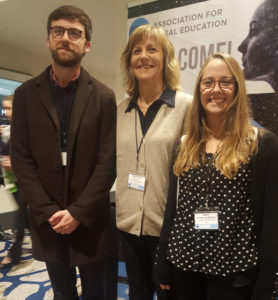
It has been recently presented the book “Ética aplicada a la Odontología” (“Ethics applied to Odontology”), written by Dr. Josep M. Ustrell Torrent and Dr. Maria Rosa Buxarrais Estrada, with forewords by Dr. José Carlos de la Macorra (Dean of the Faculty of Odontology at the Complutense University of Madrid) and by Dr. Lluís Cabellol Angelats (Senior lecturer at the Faculty of Law of the University of Barcelona).
All information regarding the book can be found in the website of the publisher, where the book can also be purchased.
Table of contents
Capítulo I. Deontología profesional
1. Ética y moral
2. Criterios para la reflexión ética en el ejercicio de la profesión
3. El acto sanitario
4. La necesidad de un código deontológico
5. Códigos de la actividad clínica
5.1. Protocolos del comportamiento ético en salud
5.2. Principios éticos de Popper
5.3. Rol de las academias y de los colegios profesionales
Capítulo II. Reflexión ética
1. Estableciendo puentes entre humanidades y ciencias de la salud
2. La interacción dentista – paciente
Capítulo III. Transferencia de la información y toma de decisiones
1. Historia clínica1.1. Nuestra actitud
1.1. Importancia de la comunicación
1.2. Aspectos legales de la Historia Clínica
1.3. Nuestra aptitud
1.4. Importancia del conocimiento
2. Secuelas en la toma de decisiones
2.1. Estrés profesional o Burnout
2.2. Yatrogenia
Capítulo IV. Camino hacia el humanismo
1. Acogida y seguridad
2. Formación en valores
3. Dimensión ética de la investigación odontológica
Capítulo V. Propuesta de recomendaciones
1. Decálogo de la ética en odontología
2. Decisiones clínicas
3. Conflictos éticos
4. Toma de decisiones éticas en odontología
Capítulo VI. Dimensión ética de las empresas del sector
1. Empresas
2. Relación con la investigación
Capítulo VII. ¿Qué nos depara el futuro?
1. Mirando hacia el futuro: la ética y las nuevas tecnologías
2. Transhumanismo
3. La enseñanza universitaria en los próximos años
Bibliografía
 A few days ago, the article “Reasons for Course Selection and Academic Satisfaction among Master’s Degree Students” has been published in Journal of Hispanic Higher Education. Its authors are Pilar Figuera, Juan Llanes, Mercedes Torrado, Robert-Guerau Valls and Maria Rosa Buxarrais, all from the University of Barcelona.
A few days ago, the article “Reasons for Course Selection and Academic Satisfaction among Master’s Degree Students” has been published in Journal of Hispanic Higher Education. Its authors are Pilar Figuera, Juan Llanes, Mercedes Torrado, Robert-Guerau Valls and Maria Rosa Buxarrais, all from the University of Barcelona.


 The article “Controversies are no excuse: Citizenship education in Spain”, written by Maria Rosa Buxarrais and Eric Ortega, has recently been published in the
The article “Controversies are no excuse: Citizenship education in Spain”, written by Maria Rosa Buxarrais and Eric Ortega, has recently been published in the 